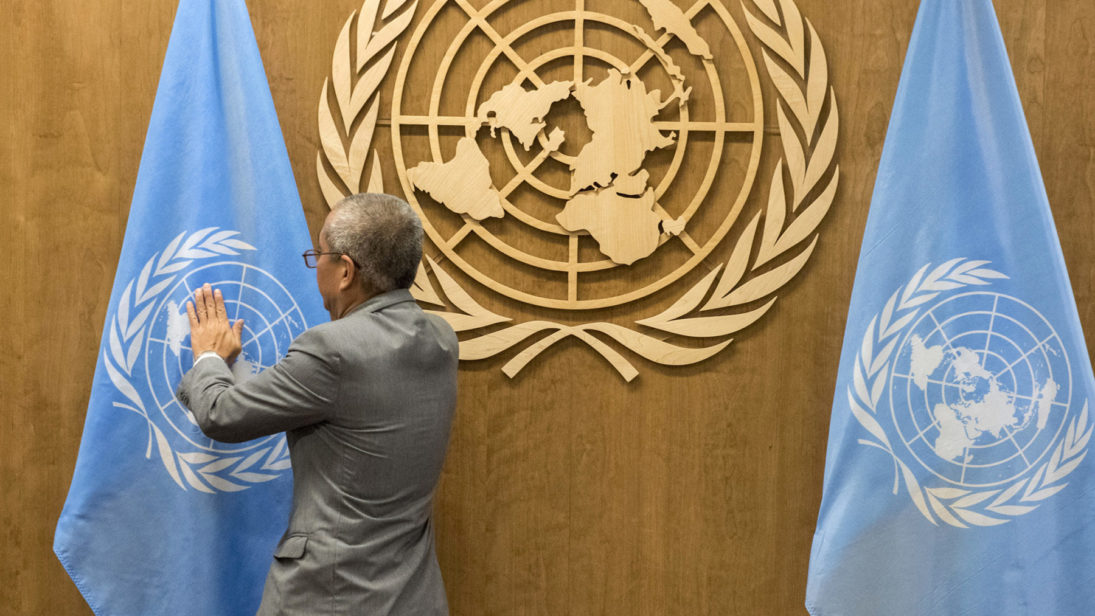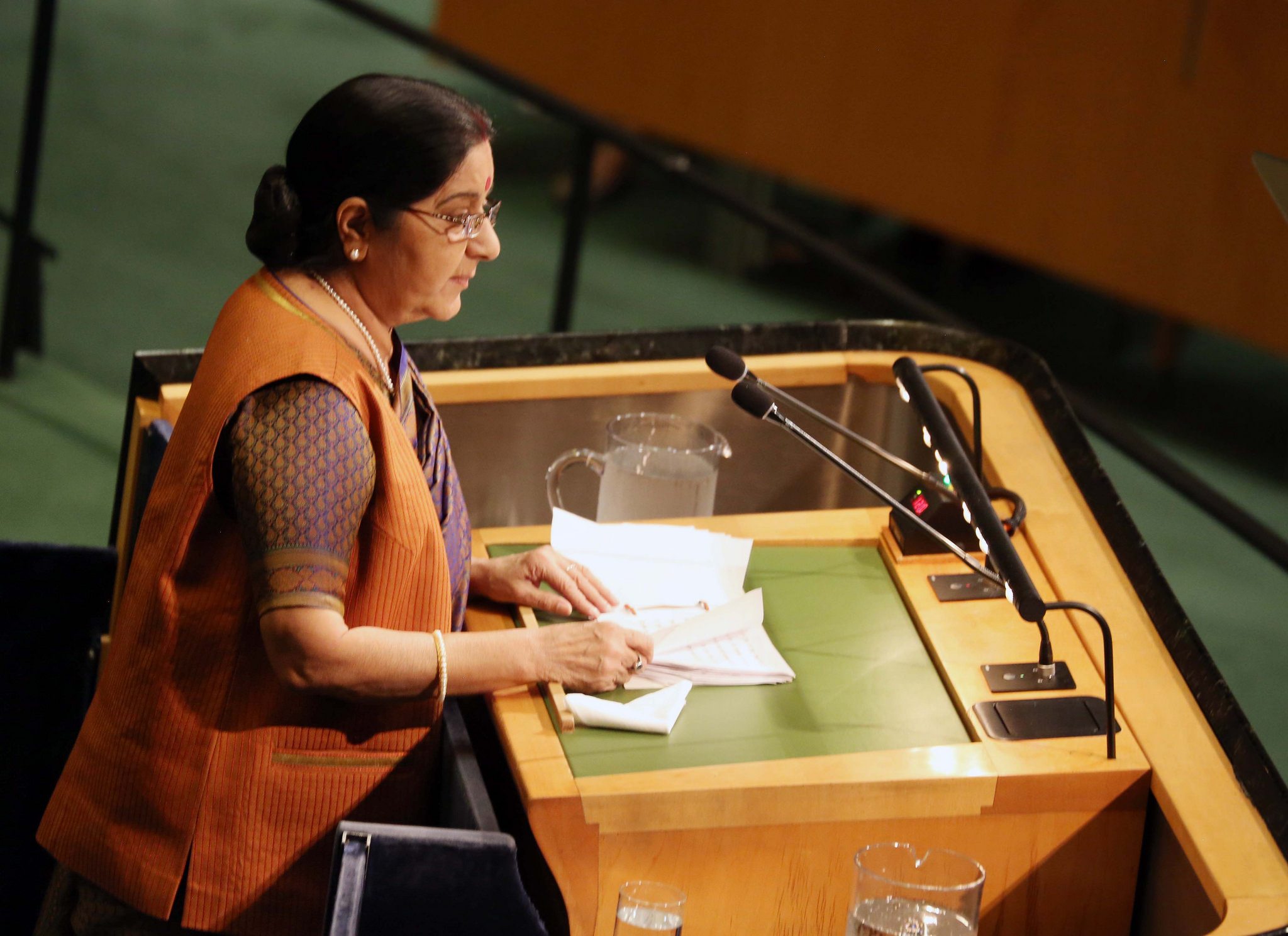
If the conventional wisdom is that diplomacy is all about calm, composed, and calculated speeches, then India and Pakistan’s representatives at the United Nations General Assembly (UNGA) may well have proved this wisdom wrong.
Lasting five days, the verbal volleys between India and Pakistan at the United Nations (UN) were triggered by Pakistani Prime Minister Shahid Khaqan Abbasi’s inaugural UNGA speech on Thursday. Abbasi mentioned Kashmir 17 times and called on the UN High Commissioner for Human Rights to conduct an inquiry “to verify the nature and extent of India’s human rights violations, secure the punishment of those responsible, and provide justice and relief to the victims.”
While this condemnation might have put India on the defensive, the use of pellet guns in Jammu & Kashmir by Indian forces does represent a real issue to the international community. Irrespective of which side you take in the geopolitical saber rattling, human rights abuses in the Valley is a stark, yet often dismissed, reality.
Abbasi went on to say: “Unfortunately, from day one of its creation, Pakistan has faced unremitting hostility from its eastern neighbor. India refuses to implement the unanimous resolutions of the UN Security Council, which mandate a UN supervised plebiscite to enable the people of Jammu and Kashmir to freely decide their destiny.” Of course, when speaking of unremitting hostility, some Indian observers might point to Operation Gibraltar and Operation Grand Slam as examples of unprovoked Pakistani attacks on Indian-administered Kashmir.
In this historical context, it is clear Prime Minister Abbasi’s rhetoric only adds to the blame game between the two neighboring countries, belying the fact that neither India nor Pakistan is without fault for the aggression against one another. As such, it would have been appropriate for the Pakistani premier to limit his speech to a principled stance against human rights abuses in Kashmir. But, given the pressures of South Asian geopolitics, appealing to their domestic base and far-right nationalists often compels leaders to make statements that fail to advance solutions to these significant problems.
Verbal Volleys Distraction from Key Challenges
On Friday, India kept the animosity going. India’s first secretary to the UN, Eenam Gambhir, said “in its short history, Pakistan has become a geography synonymous with terror. The quest for a land of pure has actually produced ‘the land of pure terror.’ Pakistan is now ‘Terroristan,’ with a flourishing industry producing and exporting global terrorism.” The statement was noted for its harshness by some in the Indian press, especially for a career diplomat.
India’s Foreign Minister Sushma Swaraj added to the fervor on Saturday in a statement that likely appeals to the conservative base of Swaraj’s Bharatiya Janata Party. Namely, Swaraj stated that “we established scientific and technical institutions which are the pride of the world. But what has Pakistan offered to the world and indeed to its own people apart from terrorism?”

Now with the U.S. Secretary of Defense, Jim Mattis, in India this week, he will likely need to tread a fine path amid the ongoing diplomatic row between India and Pakistan. Contentious issues like India’s role in Afghanistan will be on the table as well as Pakistan’s response. In particular, Pakistan strongly opposes Indian involvement in neighboring Afghanistan given recent allegations that India’s intelligence service, the Research and Analysis Wing (RAW), had offered funds and support to Tehrik-e-Taliban Pakistan (TTP), a militant group that has carried out high-profile attacks within Pakistan and has close links with the Afghan Taliban. Ehsanullah Ehsan, a former TTP spokesman, claimed a RAW-TTP connection, which could make India’s attempts to increase U.S. pressure on Pakistan regarding anti-India groups, like Hizbul Mujahideen, difficult.
As such, India and Pakistan remain at loggerheads regarding support for proxy groups and a number of other issues with neither side taking the necessary steps to improve the relationship. The current status of bilateral relations shows that it is high time for India and Pakistan to shed far-right nationalist and Islamist tendencies respectively, and work towards mutual cooperation in the region. In particular, both sides should halt covert operations and support for proxy groups, avoid warmongering, and genuinely work towards stabilization. Else, the possibility of a mushroom cloud hanging over the sub-continent will continue to haunt the 1.5 billion people living in India and Pakistan.
***
Editor’s Note: Click here to read this article in Urdu
Image 1: United Nations Photo via Flickr.
Image 2: MEAphotogallery via Flickr.


